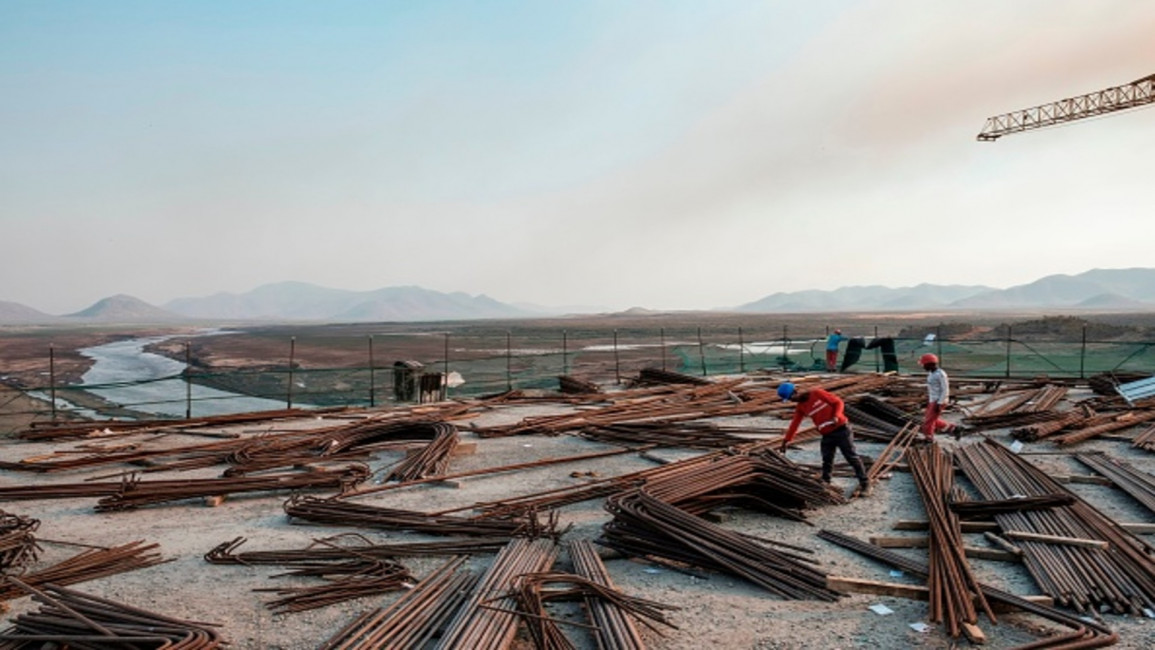South Sudan set to receive 'cheap electricity' from Ethiopia's controversial Grand Renaissance Dam
South Sudan will receive 500 megawatts of electricity from Ethiopia over the next six years following the construction of the controversial Grand Ethiopian Renaissance Dam (GERD), according to reports.
Addis Ababa will export 100 megawatts of electric power to Juba in an initial three-year period, and then a further 400 megawatts over the next three years, according to Ethiopian Electric Power, a state-owned electric producer.
The agreement was part of a memorandum of understanding, signed on 5 May when a South Sudanese delegation visited Ethiopia, relating to the integration of electrical infrastructure.
"[Ethiopia is] aggressively working to supply electric power to its neighbours as part of regional integration," said the chief of Ethiopian Electric Power, Anadualem Siaa, to the country's state media.
Ethiopia also has agreements to sell electricity to Kenya and Tanzania. There are plans to supply power to Rwanda, the Somaliland region of Somalia, and Burundi.
But the dam has been highly controversial in downstream countries, particularly Egypt which is heavily reliant on Nile waters.
South Sudan's Energy Minister Peter Marcelo, who was part of the touring delegation in Ethiopia, said the agreement will provide a significant boost for his country’s development, reported Ethiopia's local media.
GERD, a mega hydroelectric dam project started in 2011 and completed by July 2021, has caused long-standing disputes between Ethiopia and nearby African countries; namely, Egypt and Sudan.
Addis Ababa maintains that the dam is an important source of regional energy and a catalyst for development, but Cairo and Khartoum have expressed concerns over water scarcity downstream. Egypt, in particular, maintains that it has historic rights over the river water.
South Sudan’s economy remains fragile and unstable due to ongoing violence in the decade following its independence. Some two-thirds of its population, around 8.9 million people, are estimated to be in need of humanitarian assistance, according to the World Bank, despite huge oil reserves.



